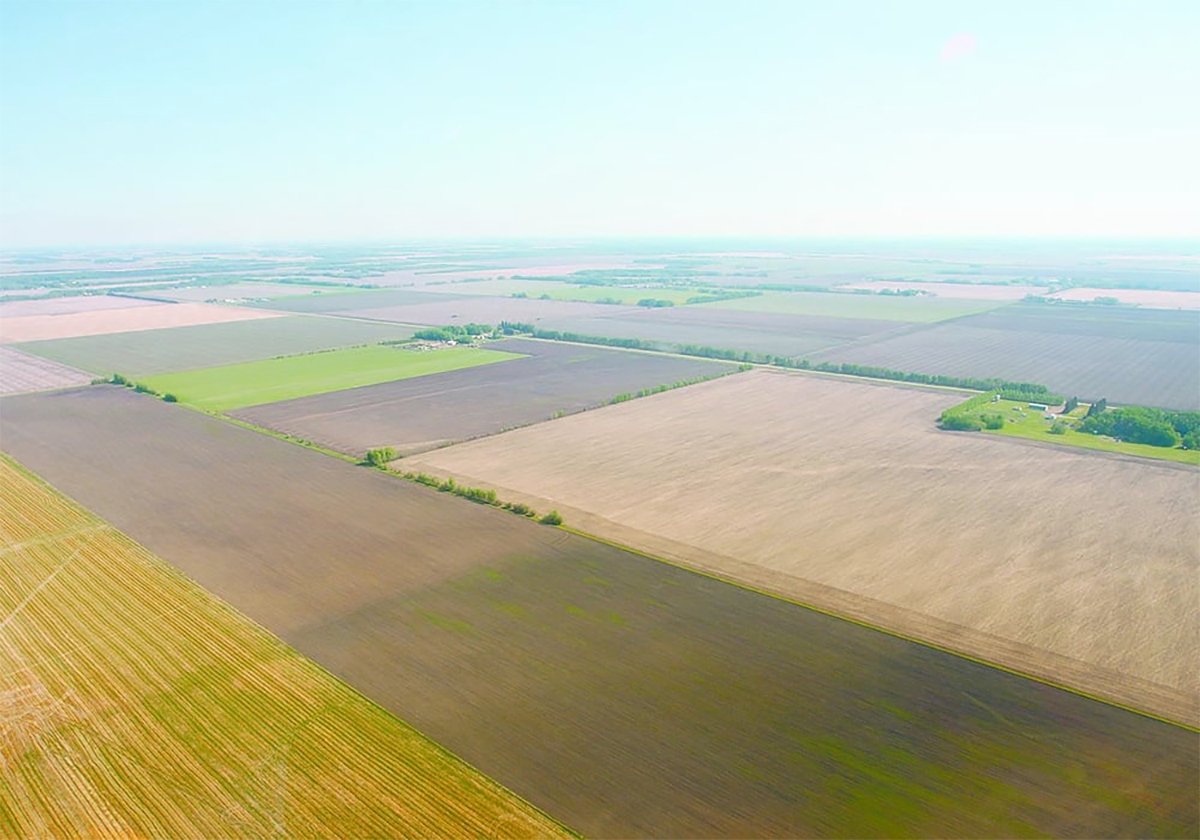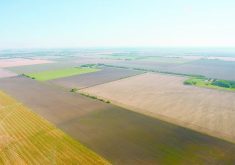Farm groups say they have found little appetite from governments to exempt producers from mandatory training
LEDUC, Alta. — Farm groups are mulling over ideas on how to make it easier for people to obtain their Class 1 licences after mandatory training requirements kick in.
During a roundtable discussion recently held at the Alberta Federation of Agriculture annual meeting in Leduc, some people hoped farmers could get a minor exemption for training.
Lynn Jacobson, president of the AFA, said board members have suggested Alberta farmers could get an F1 license. Theoretically, it would allow farmers to drive Class 1 vehicles on the farm and only for a certain number of kilometres on gravel roads, he said.
Read Also

Saskatchewan amends farm land ownership regulations
The Canada Pension Plan Investment Board can no longer own Saskatchewan farmland.
“The concept would help producers a lot, especially during harvest,” he said. “This model in no way would allow farmers to drive to a grain terminal in Edmonton, for example.”
Despite the push for the exemption, there is little appetite from governments to exempt farmers.
In an email, Alberta Transportation spokesperson Brooklyn Elhard said the department is not considering creating a separate class of licence for farmers.
She said the province will require everyone who received their Class 1 licence after March 1, 2018 to comply with mandatory training.
Farmers and farm workers have until Nov. 20 to apply for an extension. By March 1, 2021, they will have to pass the mandatory knowledge and road tests.
Saskatchewan has made similar moves.
The province initially gave farmers an F endorsement on their licence, meaning they wouldn’t have to complete mandatory training.
By March 1, however, farmers or farm workers looking to obtain an F endorsement will be required to take 40 hours of commercial driver training.
By March 1, 2020, the F endorsement in Saskatchewan will be eliminated and anyone wanting to operate a Class 1 vehicle must complete the mandatory training.
Drivers who already got the 40 hours of training will be given credit for the mandatory program.
The Saskatchewan government has said it’s getting rid of the endorsement because, after consulting with farmers, many said they agreed training was necessary to improve safety.
Manitoba requires mandatory training for those seeking a Class 1 licence. The rules took effect Sept. 1.
“There is no public appetite to talk about not licensing anybody to the same level,” said Todd Lewis, president of the Agricultural Producers Association of Saskatchewan, speaking during the meeting.
“It’s a non-starter provincially and at the farm level,” he said.
There has been much public support for mandatory training since the Humboldt Broncos hockey team bus crash in April 2018, which killed 16 people and injured 13 others.
Following the crash, numerous loopholes in the industry were uncovered. Many drivers had little or no training and there have been inadequate training schools and little government oversight.
But now that mandatory training will soon be required, producers are wondering how it can be more accessible.
The industry is facing labour shortages, with some worrying the training will discourage workers from getting into the industry. Training can cost upwards of $10,000.
As well, farmers worry they’ll receive less help if there are fewer workers. Drivers are critically needed during harvest and seeding.
To address these challenges, Lewis said it may be worthwhile to declare truck driving as a profession. It would allow prospective drivers to access student loans.
“As time goes on, we will see employees get that licensing before they are hired on a farm, and they are going to have to find a way to pay for it themselves,” he said. “I don’t think producers are going to put that money out for short-term employees.”
Workers receiving employment insurance may also be an avenue.
Mary Robinson, president of the Canadian Federation of Agriculture, said there is a program in Prince Edward Island that offsets training costs for people receiving employment insurance.
Employers may also need to step up and help pay for training, working out an agreement so they can retain employees, she added.
“They’ve got to take an active role to address these restrictions,” she said. “The benefits are for them.”
In Alberta, Elhard said the province is engaging with farmers to find ways to reduce the cost of training.
Various government departments are working together to examine a number of avenues to reduce costs and make training more accessible, she said.


















